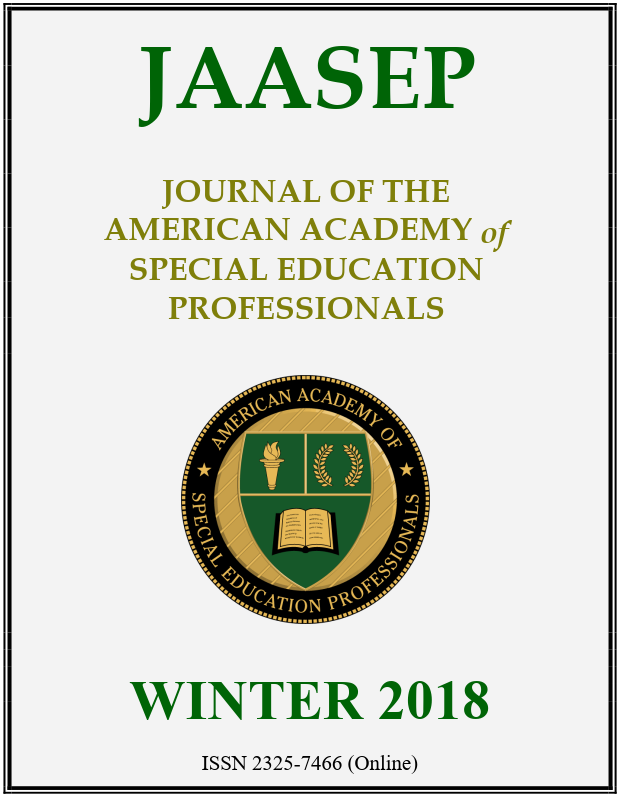Factors that May Hinder the Implementation of the School-Wide Positive Behavior Intervention Support Model
American Psychological Association Zero Tolerance Task Force. (2008). Are zero tolerance policies effective in the schools? An evidentiary review and recommendations. American Psychologist, 63, 852-862. DOI: https://doi.org/10.1037/0003-066X.63.9.852
Blonigen, B. A., Harbaugh, W. T., Singell, L. D., Horner, R. H., Irvin, L. K., & Smolkowski, K. S. (2008). Application of economic analysis to school-wide positive behavior support (SWPBS) programs. Journal of Positive Behavior Interventions, 10(1), 5-19. DOI: https://doi.org/10.1177/1098300707311366
Caldarella, P., Shatzer, R. H., Gray, K. M., Young, K. R., & Young, E. L. (2011). The effects of school-wide positive behavior support on middle school climate and student outcomes. Research in Middle Level Education, 35(4), 1-14. DOI: https://doi.org/10.1080/19404476.2011.11462087
Chitiyo, M. & Wheeler, J. J. (2009). Challenges faced by school teachers in implementing positive behavior support in their school systems. Remedial and Special Education, 30(1), 58-63. DOI: https://doi.org/10.1177/0741932508315049
Farkas, M., Simonson, B., Migdole, S., Donovan, M., Clemens, K., Cicchese, V. (2012) Schoolwide positive behavior support in an alternative school setting: An evaluation of fidelity, outcomes and social validity of Tier I implementation. Journal of Emotional and Behavioral Disorders, 20 (4), 275-288. DOI: https://doi.org/10.1177/1063426610389615
Fallon, L. M. & McCarthy, S. R. & Sanetti, L. M. H. (2014). School-wide Positive Behavior Support (SWPBS) in the Classroom: Assessing perceived challenges to consistent implementation in Connecticut schools. Education and Treatment of Children 37(1), 1-24 DOI: https://doi.org/10.1353/etc.2014.0001
Gottlieb, J., Alter, M., Gottlieb, B. W., & Wishner, J. (1994). Special education in urban America: It's not justifiable for many. The Journal of Special Education, 27(4), 453-465. DOI: https://doi.org/10.1177/002246699402700406
Kincaid, D., Childs, K., Blase, K.A., & Wallace, F. (2007). Identifying barriers and facilitators in implementing schoolwide positive behavior support. Journal of Positive Behavior Interventions, 9, 174-184. DOI: https://doi.org/10.1177/10983007070090030501
Lassen, S. R., Steele, M. M., & Sailor, W. (2006). The relationship of school‐wide positive behavior support to academic achievement in an urban middle school. Psychology in the Schools, 43(6), 701-712. DOI: https://doi.org/10.1002/pits.20177
Lewis, T. J., Powers, L. J., Kely, M. J., & Newcomer, L. L. (2002). Reducing problem behaviors on the playground: An investigation of the application of schoolwide positive behavior supports. Psychology in the Schools, 39(2), 181-190. DOI: https://doi.org/10.1002/pits.10029
Lewis, T. J., & Sugai, G. (1999). Effective behavior support: A systems approach to proactive schoolwide management. Focus on Exceptional Children, 31(6), 1. DOI: https://doi.org/10.17161/fec.v31i6.6767
Lindsey, B. C. (2008). Looking at positive behavior interventions and supports through the lens of innovations of diffusions. The Innovation Journal, 13(2), 2-18.
Lohrmann, S., Forman, S., Martin, S., & Palmieri, M. (2008). Understanding school personnel’s resistance to adopting schoolwide positive behavior support at a universal level of intervention. Journal of Positive Behavior Interventions, 10(4), 256-269. DOI: https://doi.org/10.1177/1098300708318963
Luiselli, J. K., Putnam, R. F., & Sunderland, M. (2002). Longitudinal evaluation of behavior support intervention in a public middle school. Journal of Positive Behavior Interventions, 4(3), 184-190. DOI: https://doi.org/10.1177/10983007020040030701
McIntosh, K., Predy, L. K., Upreti, G., Hume, A. E., Turri, M. G., & Mathews, S. (2014). Perceptions of contextual features related to implementation and sustainability of school-wide positive behavior support. Journal of Positive Behavior Interventions, 16(1), 31-43. DOI: https://doi.org/10.1177/1098300712470723
OSEP Technical Assistance Center on Positive Behavioral Interventions and Support (2013). Schools Implementing SWPBS Counte [Data file]. Retrieved from www.pbis.org Osher, D., Bear, G. G., Sprague, J. R., & Doyle, W. (2010). How can we improve school discipline? Educational Researcher, 39(1), 48-58. DOI: https://doi.org/10.3102/0013189X09357618
Pinkelman, S. E., McIntosh, K., Rasplica, C. K., Berg, T., & Strickland-Cohen, M. K. (2015). Perceived enablers and barriers related to sustainability of school-wide positive behavioral interventions and supports. Behavioral Disorders, 40(3), 171-183. DOI: https://doi.org/10.17988/0198-7429-40.3.171
Ryan, J. B., & Peterson, R. L. (2004). Physical restraint in school. Behavioral Disorders, 29 (2), 154-168 DOI: https://doi.org/10.1177/019874290402900206
Ryan, J. B., Peterson, R. L., & Rozalski, M. (2007). State policies concerning the use of seclusion timeout in schools. Education and Treatment of Children, 30(3) 215-239. DOI: https://doi.org/10.1353/etc.2007.0032
Scott, T. M., Bucalos, A., Liaupsin, C., Nelson, C. M., Jolivette, K., & DeShea, L. (2004). Using functional behavior assessment in general education settings: Making a case for effectiveness and efficiency. Behavioral disorders, 29(2) 189-201. DOI: https://doi.org/10.1177/019874290402900207
Scott, S., Plotnikoff, R., Karunamuni, N., Bize, R. & Rodgers, W. (2008). Factors influencing the adoption of an innovation: Exploring the uptake of the Canadian Heart Health Kit (HHK). Implementation Science, 3(41), 1-20. DOI: https://doi.org/10.1186/1748-5908-3-41
Sugai, G., & Horner, R. (2002). The evolution of discipline practices: School-wide positive behavior supports. Child & Family Behavior Therapy, 24(12), 23-50. DOI: https://doi.org/10.1300/J019v24n01_03
Vollmer, T. R., & Northup, J. (1996). Some implications of functional analysis for school psychology. School Psychology Quarterly, 11(1), 76. DOI: https://doi.org/10.1037/h0088922
Wagner, M., Friend, M., Bursuck, W. D., Kutash, K., Duchnowski, A. J., Sumi, W. C., & Epstein, M. H. (2006). Educating students with emotional disturbances: A national perspective on school programs and services. Journal of Emotional and Behavioral Disorders, 14(1), 12-30. DOI: https://doi.org/10.1177/10634266060140010201
Wells, N., Free, M., & Adams, R. (2007). Nursing research internship: Enhancing evidence-based practice among staff nurses. Journal of Nursing Administration, 37(3), 135–143. DOI: https://doi.org/10.1097/01.NNA.0000262732.14123.a2
Downloads
Article Information
- Article Type Articles
- Submitted January 16, 2018
- Published February 15, 2018
- Issue Winter 2018
- Section Articles
